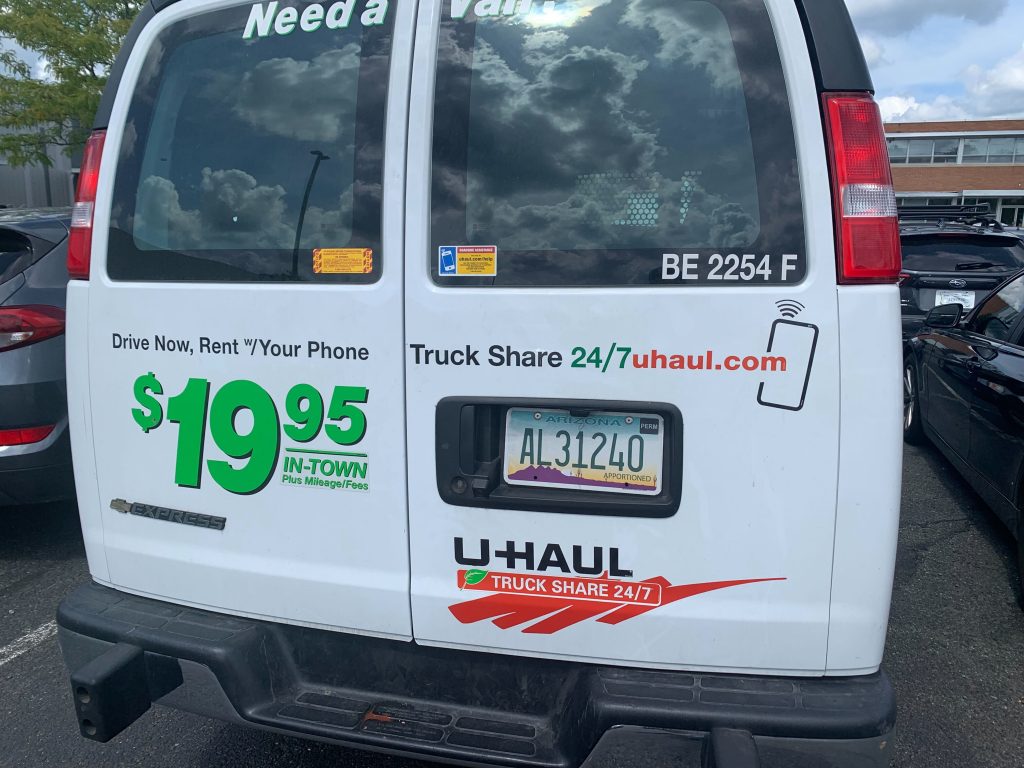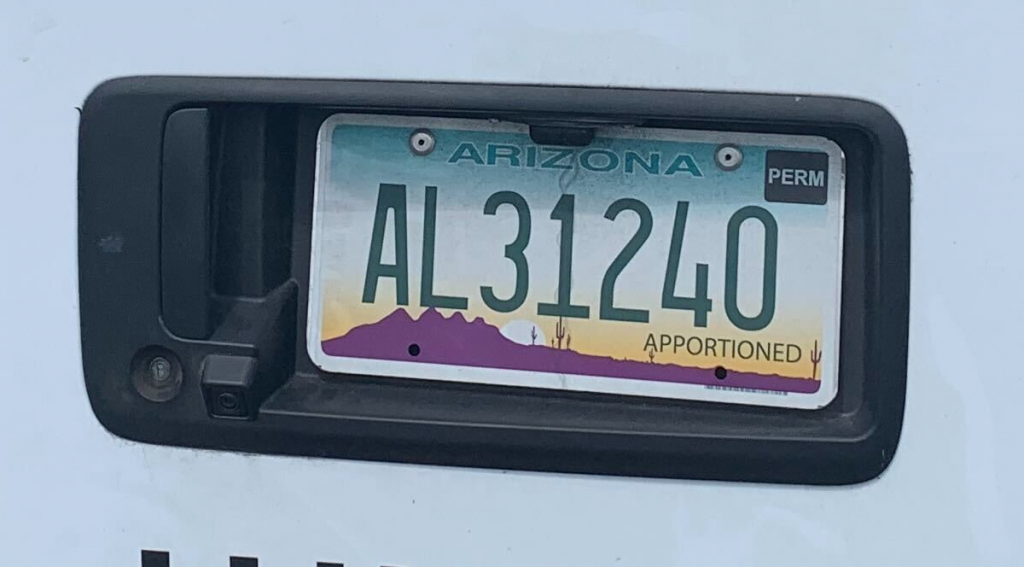Why U-Hauls Pretend to be From Arizona

If you’re on a long car ride with a bunch of kids — and trust me on this, I have recent first-hand experience — you may want to play the license plate game. (Well, if you’re in the U.S. or Canada, at least.) The rules are straightforward: every time you see a license plate from a U.S. state or Canadian province that you haven’t seen before (on that trip or otherwise, up to you), you call it out, mark it down, and celebrate a little.
As you play the game more and more, you’ll learn a few tricks. First, you’ll develop a familiarity with license plate designs; you won’t need to get dangerously close to another car to confirm that it has plates from, say, Vermont, because Vermont has a distinctively very green plate that no other state has. You’ll learn that big trucks often have two plates, one on the tractor and one on the trailer, and those plates can be from different states. And you’ll often soon discover a really easy way to find a license plate from Arizona: just look for a U-Haul, like the one seen above.
That’s because all U-Hauls outside of Alaska and Hawaii have Arizona plates — even if they’ve never been anywhere near Arizona.
For most of us, the rule is simple: you register your car in the state you live in. When you do, you pay a small fee, which the state usually uses to help pay for roads and other automobile-related infrastructure. The theory is that, while you’re free to move across the country, you’re going to do most of your driving near your home, so New York doesn’t really care too much when someone with Wyoming plates drives into Manhattan for a vacation. But when you have vehicles designed for interstate commerce, the “get plates in your own state” rules don’t really work as well; as recently as the 1960s, you’d see trucks with multiple states’ license plates because each state the truck drove into demanded a licensing fee. With 48 contiguous states, that’s a nightmare, so in the 1970s, those 48 states and Canada got together and created a system, called the “International Registration Plan,” or IRP.
Under the IRP, commercial vehicle owners can register their vehicles in whatever state they wish. As CNN reports, instead of paying that small licensing fee to the state where the plates come from, the owners “pay fees to other states based on how many miles they drive in them and their weight. Some companies keep track of miles manually while others use GPS systems.” And those fees are a lot higher than those of us with normal cars pay, often in excess of $1,000 per vehicle per year. And to make it clear that U-Hauls (and other participating vehicles) are covered by the IRP, they get special license plates. As seen below — it’s just a zoom-in on the image above — their plates are labeled with the word “apportioned,” which means that the fee is divided across states based on where the vehicle goes.

U-Haul, being a company that leases out vehicles that transport stuff from point to point, needs to have its vehicles appropriately registered, so they take advantage of the IRP. They decided to register all of their cars in Arizona because the company is headquartered there, even though the vast majority of their vehicles never enter the state. And no, there’s no requirement that U-Haul register their vehicles this way; they could have registered them just about anywhere. (Greyhound, which also operates under the IRP, does not register all of its buses in the same state.) Except for some free advertising and perhaps a small flat fee for the physical plates themselves, Arizona doesn’t make any extra money off the deal.
Bonus fact: U-Haul will rent one of their trailers to just about anyone driving just about anything, but there’s one notable exception: if you have a Ford Explorer from before 2011, you’re out of luck. If you try to via their website, you’ll get an error message (here’s a screenshot for those who don’t want to fill out the form) saying that “U-Haul has chosen not to rent behind this tow vehicle based on our history of excessive costs in defending lawsuits involving Ford Explorer towing combinations” and recommending you rent a van or truck from them instead. The policy, which U-Haul says is not related to a safety issue, has been in place since 2004, two years after “the National Highway Traffic Safety Administration traced Explorer tire failures and resulting rollovers to manufacturing flaws in the Firestone tires,” per the New York Times.
From the Archives: When New York Tried to Take Away a W: The story of a one-letter license plate.
